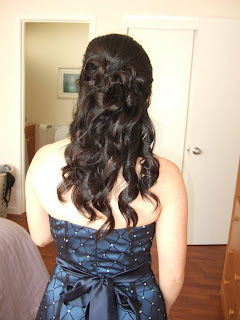One month later from the start of May, and I’m sitting here wondering if my next blog entry would finally be one that doesn’t involve the subject of illness. May 1st started me off with a normal cold/sore throat, which led to an extended cough that required antibiotics, which really didn't help as the cough transitioned into seasonal allergies. I got my first migraine ever coming back up from a Southern California trip. I had to schedule an emergency dentist appointment to re-seal a tooth’s crown that suddenly popped off during flossing. Just a few weeks ago, even my work computer caught a virus. But the worst that happened was I caught a stomach bug and ended up missing the entire annual Gasshuku at Lake Tahoe.
It must have been adrenaline that got me there, and every day, I woke up in the hotel room with the hope that I could hobble to the gym and train at least one session, only to have that hope shot down by yet another trip to the bathroom. As I lay groaning in bed, wishing it could have been any other way, I wondered if I had been a bad Buddhist lately and missed a vegetarian day, or forgot to help my fair share of old ladies across the street to get that big of a karmic kick in the butt.
It must have been adrenaline that got me back. The prospect of home, of comfort foods my body was used to processing when it’s ill, of the Bay Area’s signature warm and healing sunlight instead of a white world of wind and snow. With four days and five pounds lost, it was difficult to stand without needing to lean onto objects. The night I came back, I stood in my future mother-in-law’s kitchen, watching her prepare my evening meal. When she learned of my ailment, she threw a handful of raw white rice onto a nonstick pan, roasting the grains over the heat until they turned a yellow-brown color. Rice—a staple in most Asian diets—has been known to have healing properties to the digestive tract. Roasted rice tea, thought to promote a healthy digestive system, is a common beverage served in Korean restaurants.
She told me that roasting the rice kills off the milky-white substance that the stomach cannot digest when it’s ill, leaving behind the nutrients that coat the lining and sustain one’s energy. Her late grandfather was an apothecary, and he left behind these simple kinds of treatments to her, along with a topical wine medicine that I have countless times used on my aikido bruises and sore joints to help them heal. In poor villages in Viet Nam, most families didn’t have the money to buy Western drugs. They didn’t have knowledge of or access to the full Bananas-Rice-Applesauce-Toast-Yogurt (BRATY) diet for stomach ailments. They worked with what they had to survive on bare essentials, and through time, their DNA adapted and learned how to process these staples. Despite everything I tried to eat in Tahoe—toast, crackers, yogurt, wonton- and chicken-noodle soup—my body refused to hang onto anything. But somewhere deep in my blood and bones, it remembers the simple miracle of roasted rice. Aikido teaches me how to live, but in her kitchen that night, I was taught a way to stay alive. I brewed teapot after teapot of her rice, mixed with ginger to warm the stomach. I cooked and ate the solid grains, along with a bland soup of fresh vegetables and lean meat, as my stomach became able to hang onto food. Slowly and surely, I started to heal.
It could have been a worse trip. I could have wound up in the Tahoe emergency room if I wasn’t able to keep hydrated. I do miss the three days of training, the priceless group dinners with good conversation and great friends, the bear sighting, the weapons work in the snow. But you do learn something from every momentous passage in your life, and this time for me, it wasn’t jo awase or sudden technique epiphanies. It’s what your body truly misses and desires when it’s down. It’s a reminder that without good health, nothing else matters. And it’s these invisible tendrils, reaching out across oceans and time, that bind me to my roots, that resurface in a lesson of who I was, to shape who I am.

 The bride, in her traditional outfit, offers tea to her parents and esteemed elders to thank them for raising her and as a symbol of her joining a new family.
The bride, in her traditional outfit, offers tea to her parents and esteemed elders to thank them for raising her and as a symbol of her joining a new family.



















